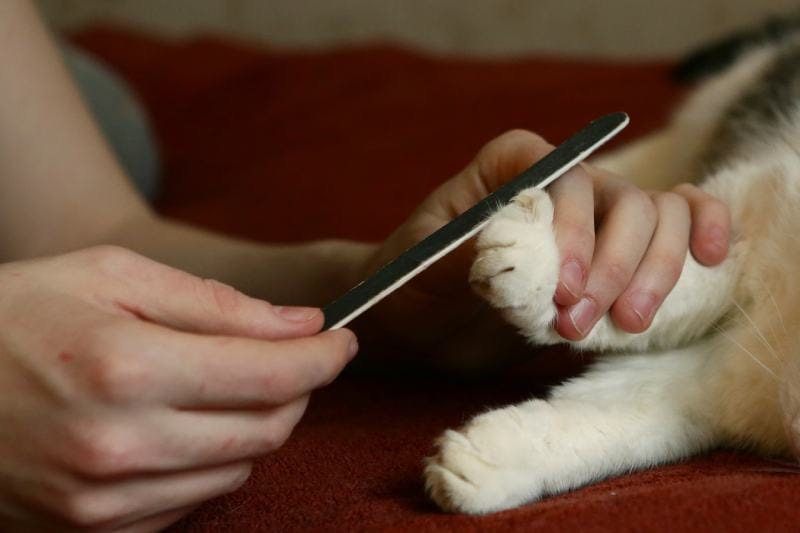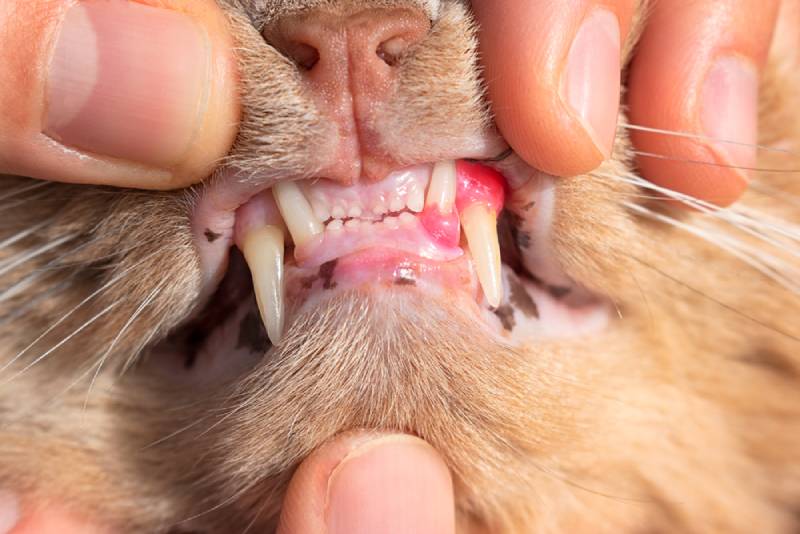Do Male Cats Kill Kittens? Understanding Feline Behavior

Updated on
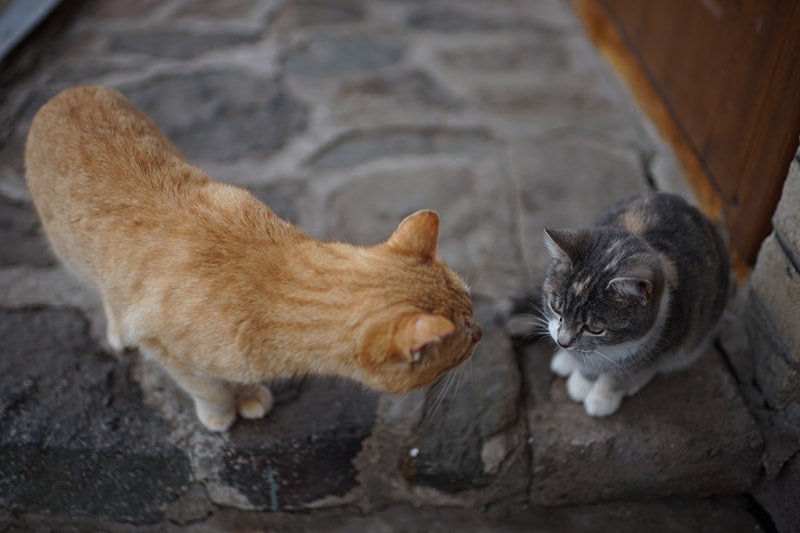
Perhaps you’re thinking about adopting a male cat and are wondering if he’s likely to harm kittens, or maybe you’ve noticed some suspicious behaviors in your existing male cats towards the kittens. It’s a heartbreaking question to think about: do male cats kill kittens? Even though it is not a recognized type of feline aggression, it may happen in certain circumstances.
Either way, it’s important to understand this topic so that you can make an informed decision about whether bringing a new kitten into the household is right for you. So, in this blog post, we’ll take a deep dive into the topic of male cats attacking and potentially killing kittens and explore why this might happen, as well as what you can do to prevent it.
Male Cats and Their Behavior Toward Kittens
When it comes to male cats and their behavior toward kittens, two different scenarios can play out. Depending on the relationship between the cats in question, a male cat’s behavior may be protective or predatory. Let’s look at each of these behaviors in more detail.
Male Cat Behavior Toward Their Own Kittens
Male cats do not generally take an active part in caring for their kittens. However, when a male cat is the father of the kitten, his behavior might be protective. In this case, you may observe him playing and grooming his kittens or exhibiting alertness when they are in danger.

Male Cat Behavior Toward Other Cats’ Kittens
Unfortunately, the story isn’t always so cute and cuddly. If a male cat is not related to the kittens in question, his behavior may take on a more predatory or even infanticidal tone.
This is especially true of cats who have not been neutered, as the hormones they secrete can trigger aggression toward other cats and their kittens. What’s more, male cats are territorial by nature, so if a strange kitten invades their space, they may view it as a threat and respond aggressively.
In these cases, it’s important to intervene quickly and remove the male cat from the situation to ensure that no harm comes to any of the animals involved.
 Top 3 Signs to Look Out For
Top 3 Signs to Look Out For
Now that we’ve established that male cats can and very rarely do kill kittens, let’s take a look at some of the signs you can watch out for.
1. Observation of Male Cat’s Behavior
If you suspect a male cat may be exhibiting predatory or infanticidal behavior, the first step is to observe his actions. If you notice him stalking or cornering kittens, growling at them, displaying aggression when other cats come near their litter, or trying to separate a kitten from its mother, these are all signs of potential danger.
2. Physical Signs on the Kittens
In addition to observing the male cat’s behavior, you should look for physical signs of distress or injury in the kittens. If you notice any cuts, scratches, bites, or bruises on the kittens that are unexplained or can’t be attributed to another cat, then this could be a sign that the male cat has attacked them.
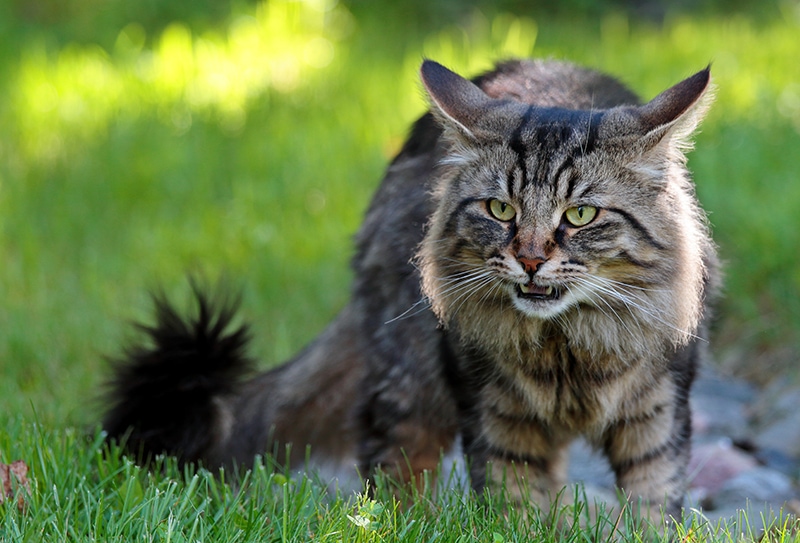
3. Comparison to Female Cat’s Behavior
Finally, it can be helpful to compare the male cat’s behavior to that of a female cat in the same situation. Female cats are less likely to show aggression toward kittens and will usually adopt a more nurturing stance toward them.
If you notice that your male cat is behaving very differently than a female cat would in the same scenario, this could be a sign that he is exhibiting predatory tendencies.
Will a Male Cat Kill His Own Kittens?
While it’s established that male cats can and sometimes do kill kittens, rarely will they kill their own. That said, if you are considering bringing a new kitten into your home or have noticed any suspicious behavior from your existing male cat, it’s essential to understand the signs of potential danger so that you can take steps to protect the safety of all cats involved.
Tips to Keep Kittens Safe From Male Cats
There are a few things you can do to keep kittens safe from male cats if a potential threat is identified.
Neutering
The most effective way to prevent male cats from harming kittens is by neutering them. This will reduce their hormone levels, helping to curb any aggressive tendencies they may have. It can also help to keep the environment more peaceful, as a neutered cat will be less likely to fight with other cats.
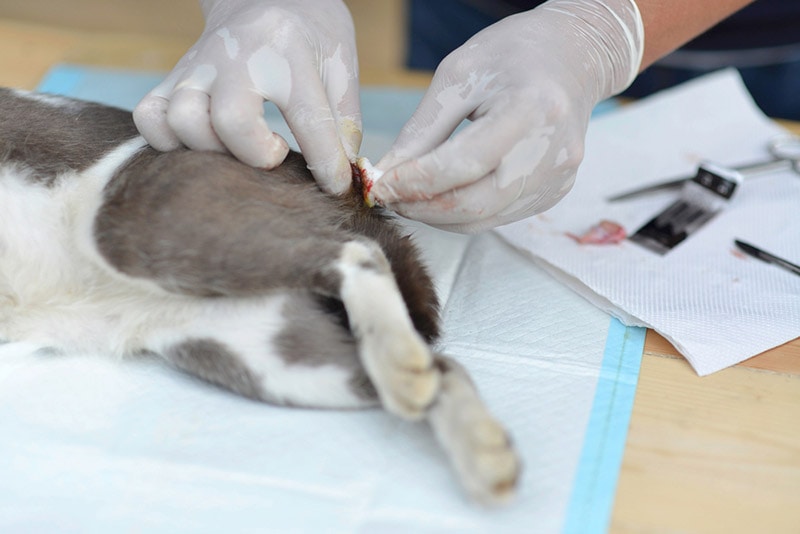
Separating the Male Cat From the Kittens
If your male cat is not neutered and you are not too sure about his reaction, it’s important to keep him away from any kittens in your home by creating separate living areas. This way, you can ensure that they are safe and won’t be exposed to any potential danger.
Providing Enough Resources and Space
Finally, make sure to provide your male cat with enough resources and space of his own so that he doesn’t feel the need to compete with other cats or kittens for access to them. This will help him stay in a more relaxed state which can reduce any aggression towards other cats or kittens.
By following these steps, you can keep your male cat and any new kittens safe and happy in your home. With a little bit of care and attention, you can ensure that all cats in your home are kept safe from harm.

Conclusion
Male cats can and (in rare circumstances) do kill kittens, but with a little bit of care and attention, you can ensure that all of the cats in your home remain safe. It is crucial that you stay on top of your cat’s behavior and take swift action if you notice anything worrying or out of the ordinary.
See also:
- Why Is My Cat Biting Her Kittens? 4 Vet-Reviewed Reasons
- Do Male Cats Scratch More Than Females? Facts & Care Tips
Featured Image Credit: newsony, Shutterstock

 Top 3 Signs to Look Out For
Top 3 Signs to Look Out For
